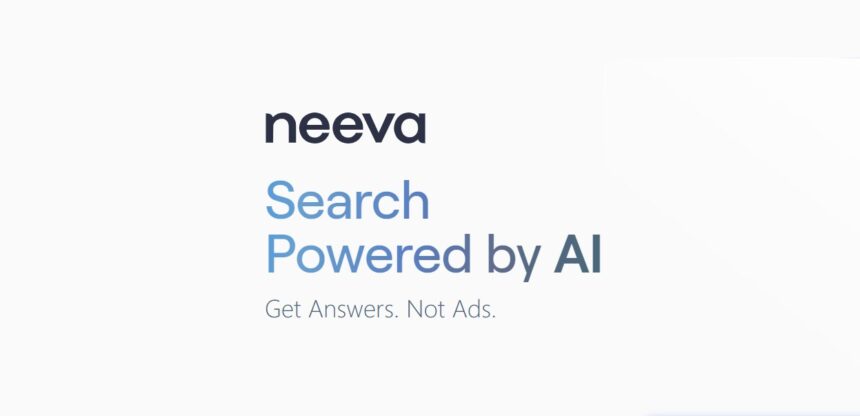In the ever-evolving realm of search engines, one name emerged as a potential challenger to the long-standing dominance of Google: Neeva. Founded by a former Google executive, Neeva set out to revolutionize the search experience by offering an advert- and tracker-free environment, providing users with an alternative to the ubiquitous presence of ads and data tracking [9].
However, news of Neeva’s recent decision to shut down its search engine has sent shockwaves through the search engine industry, sparking discussions about the future of search and the growing influence of artificial intelligence (AI) [6].
The Rise of Neeva and Its Unique Proposition
Neeva, the brainchild of a former Google executive, burst onto the search engine scene with a bold vision to challenge the prevailing norms.
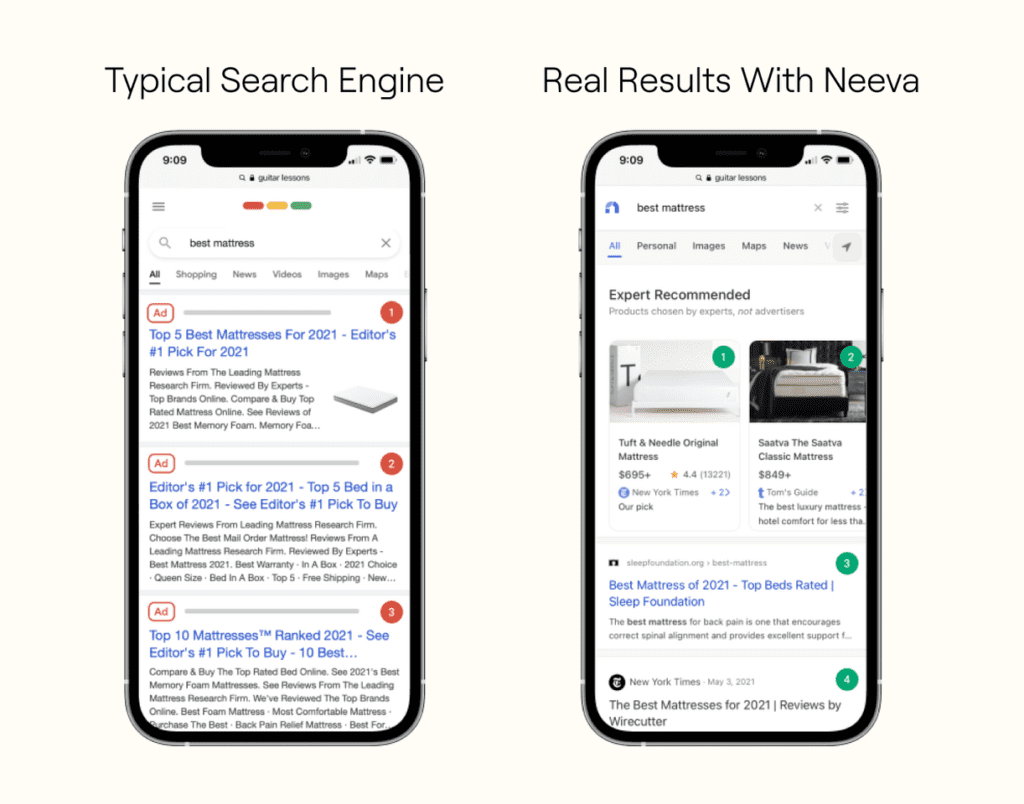
At its core, Neeva sought to provide users with an unparalleled search experience by eliminating advertisements and trackers that often inundate traditional search engines [1]. This unique proposition resonated with users who were increasingly concerned about their privacy and the intrusive nature of online advertising.
Offering ad-free & tracker-free, in exchange for a subscription fee
In a world where ads seem to follow us everywhere we go, Neeva’s innovative approach stood out. Rather than bombarding users with targeted ads, Neeva offered an alternative model where users paid a subscription fee in exchange for an ad-free search experience [1].
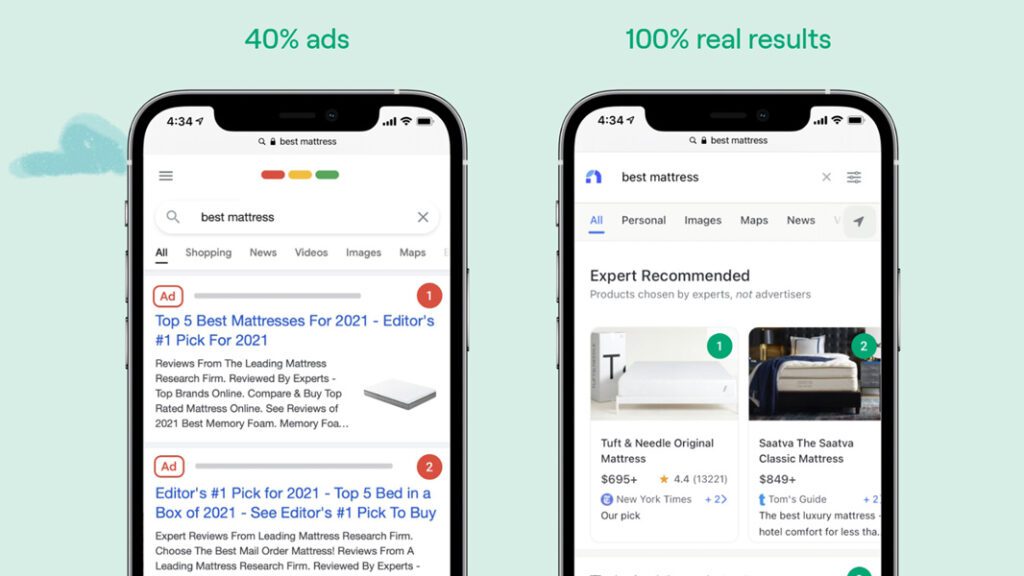
By removing advertisements from the equation, Neeva aimed to create a clutter-free environment where users could focus solely on finding the information they sought.
Privacy and value, seeking a secure search experience
Privacy was a key pillar of Neeva’s mission. The search engine was designed to prioritize user data protection and minimize the collection and sharing of personal information.
Neeva aimed to provide a secure search experience by limiting data tracking and retaining user data only for as long as necessary [4]. This emphasis on privacy resonated with users who were increasingly aware of the potential risks associated with their online activities.

Neeva’s unique proposition offered users more than just an escape from ads and trackers. It provided them with a sense of control and peace of mind, knowing that their search queries were not being exploited for targeted advertising or shared with third parties.
By placing privacy and user experience at the forefront, Neeva carved out a niche in the search engine market, attracting users who were eager for a more secure and personalized search journey.

However, despite its innovative approach and compelling value proposition, Neeva faced significant challenges in gaining traction and building a substantial user base. The dominance of established players like Google and Microsoft presented formidable competition, making it difficult for Neeva to penetrate the market on a large scale.
The Challenges Faced by Neeva
While Neeva’s vision of an ad- and tracker-free search engine held immense promise, the company faced a series of challenges that hindered its ability to attract a substantial user base.
Attracting a substantial user base
One of the key hurdles Neeva encountered was the difficulty of gaining widespread adoption. Despite its compelling value proposition, the search engine struggled to entice users to switch from established platforms to embrace a new and relatively unknown player in the market [3].
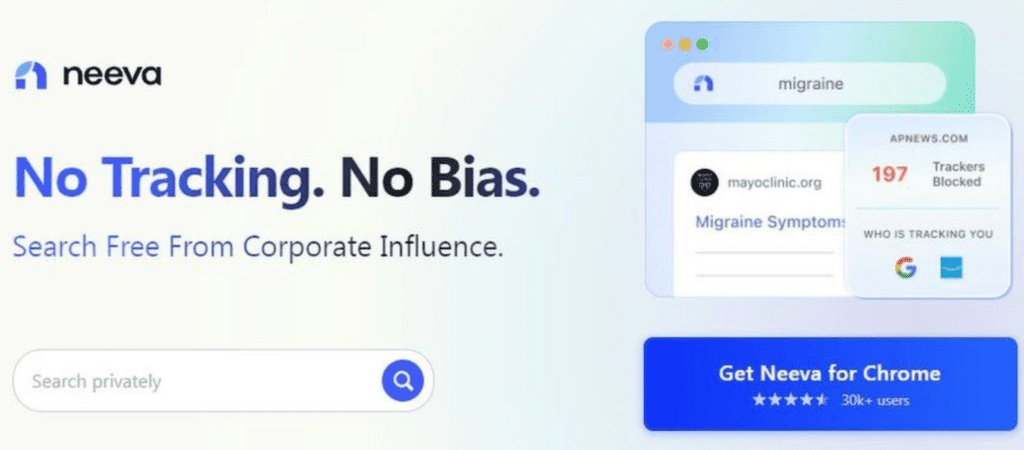
Convincing users to break their habits and migrate to a different search engine proved to be a formidable task, particularly when competing against well-established incumbents like Google and Microsoft.
Competitors integrated generative AI into their search engines
The competition from industry giants like Google and Microsoft presented a significant barrier for Neeva. Both companies made their moves to integrate generative AI technologies into their search engines, enhancing the user experience and further solidifying their positions in the market [6].
These AI-driven advancements enabled search engines to deliver more personalized and contextually relevant results, making it challenging for Neeva to compete solely on the basis of its ad-free and privacy-focused approach.
Emergence of OpenAI’s ChatGPT
Furthermore, the emergence of OpenAI’s ChatGPT, a groundbreaking large language chatbot, had a profound impact on the search engine landscape. ChatGPT revolutionized user interactions by providing conversational AI capabilities and generating human-like responses to queries [6].

This breakthrough technology not only captured public attention but also influenced user expectations regarding the level of intelligence and interactivity they desired from search engines.
As a result, the presence of well-established competitors and the disruptive effects of OpenAI’s ChatGPT posed considerable challenges for Neeva. Despite its innovative approach and emphasis on privacy, the search engine struggled to differentiate itself and gain the critical mass of users necessary for sustainable growth.

Neeva’s Decision to Shut Down and Pivot to AI
In a surprising turn of events, Neeva recently made an official announcement that it would be shutting down its search engine [2]. This decision sent shockwaves through the industry, prompting discussions about the company’s future direction and the implications for the search engine landscape.

Focus on a new area around large language model (LLM)
Rather than completely bowing out of the market, Neeva revealed its intention to shift its focus to a new area, potentially centered around its large language model (LLM) technology [5]. This strategic pivot towards AI indicates the company’s recognition of the evolving needs and expectations of users in the search engine domain.
By leveraging the power of AI and large language models, Neeva aims to explore new opportunities and provide innovative solutions beyond traditional search engine functionalities.
Neeva’s pivot to AI and the acquisition by Snowflake
Interestingly, rumors have been circulating about a potential acquisition of Neeva by Snowflake, a leading cloud data platform [2]. While the details remain speculative, this connection between Neeva’s pivot to AI and the acquisition talks highlights the potential synergies between the two companies.
Snowflake’s expertise in handling large-scale data and Neeva’s focus on AI-powered search technologies could create a formidable force in the industry, paving the way for cutting-edge advancements in search capabilities.
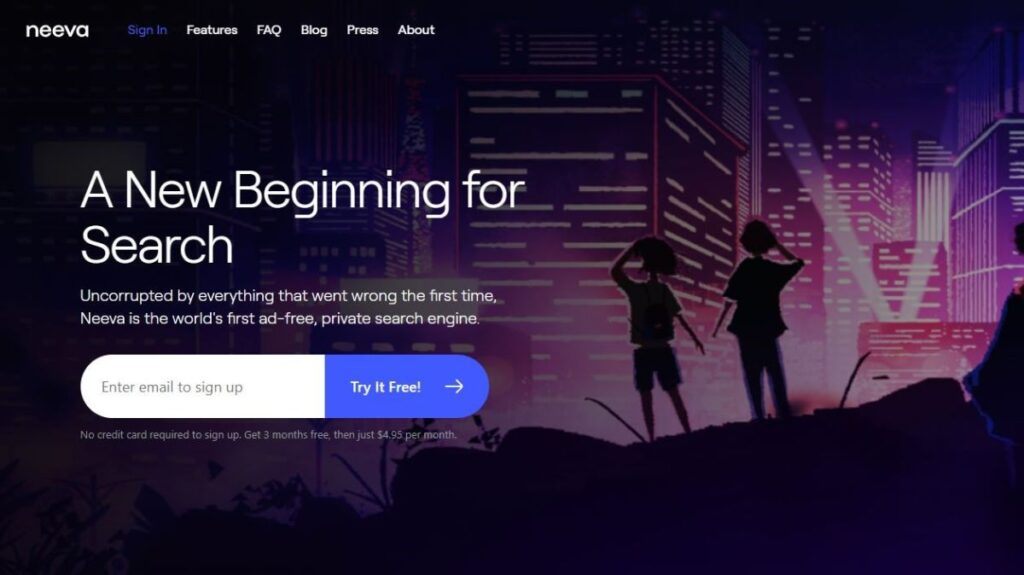
Pivot to AI-driven technology
This strategic decision to shut down the search engine and pivot towards AI represents a calculated move by Neeva to adapt and thrive in a rapidly changing landscape.
Recognizing the challenges faced in competing directly with industry giants and the disruptive impact of AI-driven technologies, Neeva is positioning itself to tap into the growing demand for intelligent search experiences and personalized interactions.
The pivot to AI aligns with broader trends in the search engine market, where the integration of artificial intelligence has become increasingly prevalent. By harnessing the capabilities of large language models, Neeva aims to deliver more contextually relevant and user-centric search experiences.
This transition not only reflects the company’s commitment to innovation but also underscores the shifting dynamics of the search engine industry, where AI is rapidly reshaping the landscape.
The Evolution of Search Engines and the Future of AI
Brief history of search engines, from conceptual to the dominance of Google
Search engines have come a long way since their inception, evolving from simple directory-based systems to the complex and sophisticated algorithms we see today.

The early days of search engines can be traced back to the 1990s when platforms like WebCrawler, Lycos, and AltaVista emerged as pioneers in the field.
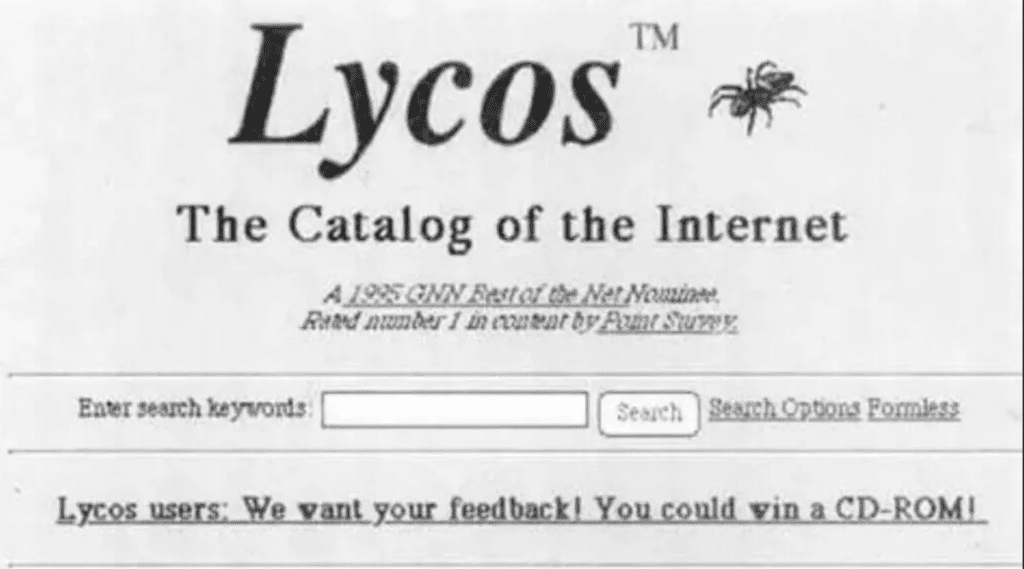
However, it was Google’s innovative approach and relentless focus on delivering the most relevant search results that propelled it to the forefront of the industry [10].

Google’s PageRank algorithm revolutionized search by ranking web pages based on their popularity and relevance, ushering in an era of unprecedented accuracy and effectiveness. With time, Google’s dominance in the search engine market became unparalleled, capturing a significant market share and shaping user expectations for search quality and speed.

AI-powered enabling more personalized and intelligent experiences
However, the landscape of search engines is undergoing a transformative shift, driven by the rapid advancements in AI. AI-powered technologies, such as generative AI and large language models, are revolutionizing the search experience by enabling more personalized and intelligent interactions [6].
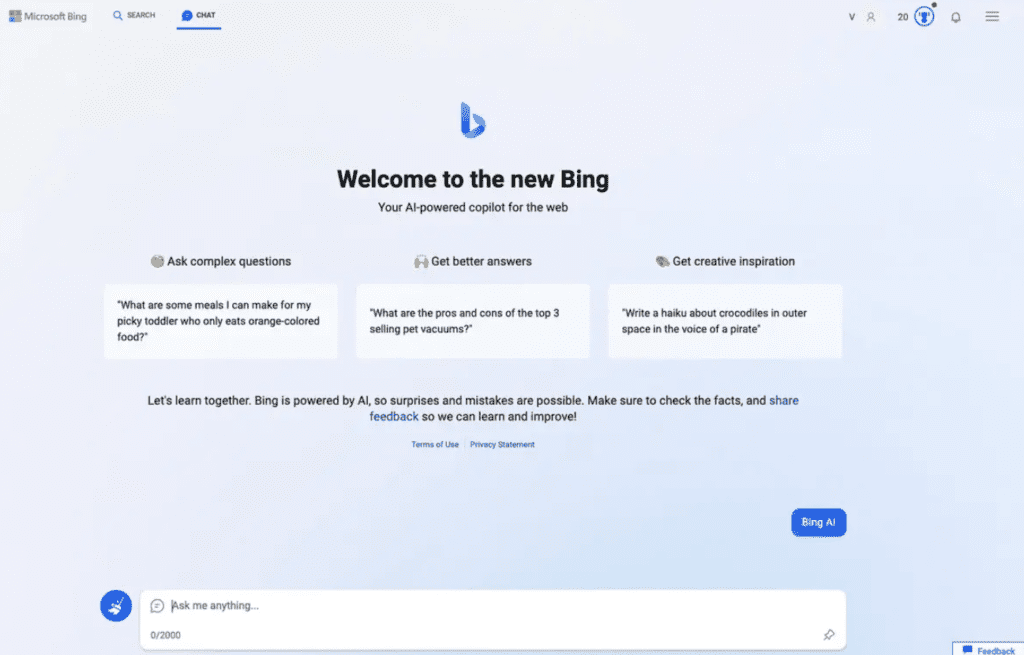
OpenAI’s ChatGPT, for example, introduced conversational AI capabilities, allowing users to engage in natural language conversations with search engines, significantly enhancing the user experience.
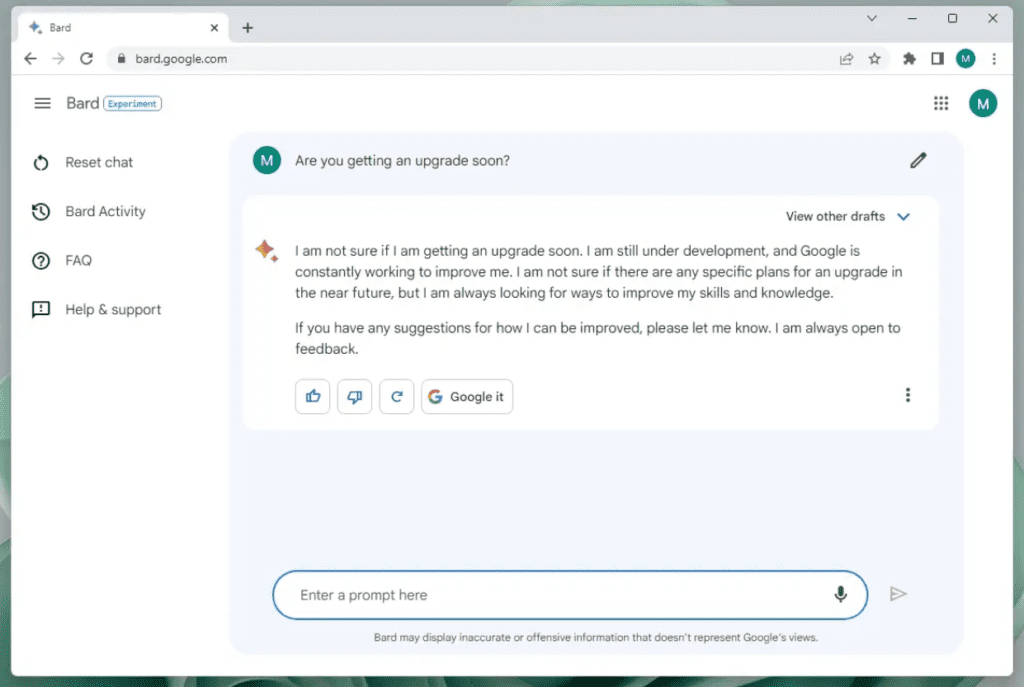
AI has the potential to reshape the search engine landscape by understanding user intent, context, and preferences at a deeper level. By leveraging vast amounts of data and sophisticated algorithms, AI-powered search engines can deliver highly personalized results tailored to the individual user.
Improved relevance and efficiency
Moreover, AI enables search engines to go beyond keyword matching and delve into the semantic meaning of queries, allowing for a more nuanced understanding of user intent.
This opens up possibilities for natural language processing, voice search, and even predictive search capabilities. AI can also assist in filtering out misinformation and improving the credibility of search results, providing users with more trustworthy and accurate information.
The integration of AI into search engines holds immense promise for the future. It has the potential to revolutionize the way we discover information, enabling more intuitive and seamless search experiences. As search engines continue to leverage AI technologies, users can expect a greater emphasis on personalization, context-awareness, and natural language understanding.
External Reference
- Neeva: Ad-free search engine shuts down
- Neeva, the would-be Google competitor, is shutting down its search engine
- Neeva is shutting down its ads-free search engine
- Neeva, co-founded by a former Google exec, to shut down its consumer search product and focus on A.I.
- Potential Google Search challenger Neeva shutting down, pivots towards AI
- Neeva, the ad-free, privacy-focused search engine from ex-Google executives, is shutting down
- Google challenger Neeva gives up on consumer search, goes all in on AI and the enterprise
- Next Steps for Neeva
- Who Can Beat Google in the Search Game? It Won’t Be Neeva
- Neeva search engine review
- Inside Neeva, the ad-free, privacy-first search engine from ex-Googlers
- Neeva Shut Downs its Search Engine

